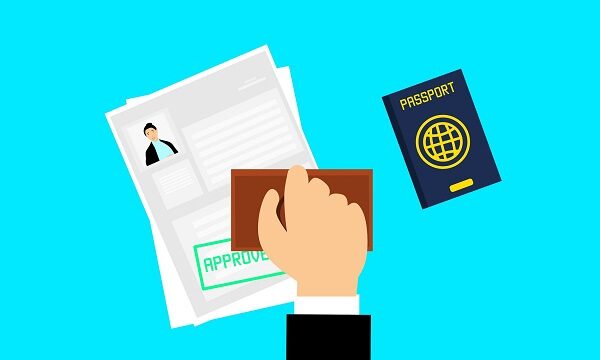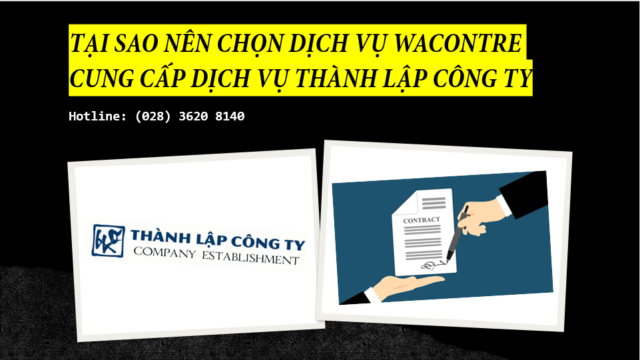A visa is one of the legal documents that proves your lawful stay in Vietnam. However, for various reasons, you might be unable to extend your visa in time, leading to its expiration. So, how should you handle this situation? Below are some important details you need to know when your visa has expired.
1. What Is an Expired Visa?
An expired visa refers to the situation in which a foreign national’s entry permit is no longer valid. When a visa expires, the foreigner must either obtain a new visa or leave Vietnam. Under current laws, expired visas cannot be directly extended and must instead be renewed through a new application. This regulation ensures tighter control over immigration and residency, helping the government manage the flow of people in and out of the country in a safe and orderly manner.
Definition of an Expired Visa
An expired visa means that the legal duration of stay indicated on the visa has ended, but the holder has not taken steps to renew or apply for a new visa. This results in the individual staying in Vietnam without valid documentation. If foreigners do not promptly take the necessary steps after their visa expires, they may face serious legal consequences, including administrative fines or even deportation from Vietnam.
Difference Between a Valid Visa and an Expired Visa
A valid visa means the duration of legal stay is still in effect, allowing the foreign national to live and work legally in Vietnam. In contrast, an expired visa means the person is residing illegally. In such cases, they must act quickly to renew or apply for a new visa to avoid legal penalties.
Types of Visas Most Prone to Expiry
Short-term visas are more likely to expire compared to long-term ones. Examples include:
- Tourist Visa (DL): Usually valid for 1–3 months and often cannot be extended multiple times.
- Work Visa (LD): Issued to foreigners working in Vietnam, but if not renewed on time, it can disrupt employment.
- Investor Visa (DT): Typically has a longer duration, but still must be renewed according to regulations to maintain legal status.
- Family Visit Visa (TT): Granted to relatives of Vietnamese citizens or foreign workers in Vietnam; it must be renewed to extend the stay.
Common Reasons Why Visas Expire
Several factors can lead to visa expiration, such as:
- Lack of Legal Understanding: Some foreigners are unaware of visa duration rules and let their visa expire without taking action.
- Busy Schedules: Work or personal matters may cause foreigners to forget their visa’s expiration date.
- Incomplete Information: Some people may not know that their visa cannot be extended and that a new application is required.
- Application Errors: Many extension requests are denied due to invalid documents or not meeting the legal requirements.
2. Consequences of an Expired Visa
An expired visa not only causes inconvenience for the individual but can also lead to serious legal consequences. Failing to comply with visa regulations may result in administrative penalties or even deportation from Vietnam.
Fines According to Vietnamese Law
Under Vietnamese law, foreigners with expired visas may face varying levels of fines depending on how long they have overstayed:
- Less than 15 days: A fine ranging from 500,000 to 2,000,000 VND (approximately 20–80 USD).
- 16 days or more: A fine ranging from 3,000,000 to 5,000,000 VND (approximately 120–200 USD).
- Long-term overstays or repeated violations: In addition to monetary fines, individuals may face a temporary ban from re-entering Vietnam or deportation from the country.
Risk of Being Deported from Vietnam
If a foreigner allows their visa to expire for too long without taking corrective action, immigration authorities may issue a deportation order. This means the individual must leave Vietnam immediately and may be banned from re-entering the country for a certain period, depending on the severity of the violation.
Impact on Future Visa Applications
Individuals with a history of immigration violations—such as overstaying or residing illegally—may face difficulties when applying for new visas in the future. Many countries, including Vietnam, keep records of immigration offenses, which are taken into account during the visa application process. In serious cases, visa applications may be denied or may require additional, more complex procedures for approval.
Solutions to Avoid Violating Visa Regulations
To avoid the risks mentioned above, foreigners should:
- Regularly check visa expiration dates: Stay informed about the status of your visa to prevent unintentional overstays.
- Apply for an extension in advance: If you plan to stay longer, apply to extend your visa at least 7–10 days before it expires.
- Contact authorities or support services: If you encounter issues or are unsure about the extension process, reach out to immigration offices or seek help from professional legal or visa consultancy services.
3. Can an Expired Visa Be Extended?
Whether an expired visa can be extended is a common concern among foreigners residing in Vietnam. Under current regulations, not all types of visas can be extended, and eligibility depends on specific circumstances.
Visa Extension Laws
According to the Law on Entry, Exit, Transit, and Residence of Foreigners in Vietnam, expired visas cannot be extended but must be reapplied for. This means that if your visa has already expired, you are required to go through the process of obtaining a new visa appropriate to your purpose of stay.
Conditions for Visa Extension
To be eligible for a visa extension in Vietnam, you must meet certain conditions:
- Valid passport: Your passport should typically have at least 6 months of validity remaining.
- No immigration violations: If you have a history of overstaying or other violations, your chances of being approved for an extension are lower.
- Valid reason for extension: You must provide a clear reason, such as continuing employment, medical treatment, or visiting family.
When You Need a New Visa Instead of an Extension
In some cases, applying for a new visa is required instead of an extension:
- Severely overdue visa: If your visa has been expired for a long period, immigration authorities may require a new visa application instead of allowing an extension.
- Ineligible visa types: Certain visa types, such as tourist visas, often cannot be extended and must be renewed by applying for a new one.
- Visa type change: If you’re switching from a tourist visa to a work or investment visa, you will need to apply for a new visa rather than extending the current one.
Cases Where Visa Extension Is Not Allowed
Common scenarios where visa extension is not permitted:
- Tourist visas that have exceeded their valid extension period.
- Individuals with a history of immigration violations.
- Passports that do not meet the minimum validity requirement.
Visa extensions must be handled at the right time and following proper procedures to avoid legal issues. If unsure, it is advisable to consult immigration authorities or legal experts for support.
4. Procedure for Handling an Expired Visa
If your visa has expired, you need to follow the steps below to apply for a new visa or resolve your residency status in Vietnam:
Prepare Documents for a New Visa or Extension
A typical application for a new visa or visa extension includes:
- A completed application form for visa issuance or extension (as per the official template).
- The original passport with valid remaining duration.
- Temporary residence confirmation from the local police where you are residing.
- Supporting documents that justify your legal reason for staying (such as a labor contract, investment license, medical treatment documents, etc., if applicable).
- Receipt of administrative fine payment (if applicable) in cases of visa overstay.
How to Submit Your Application
Applications for visa issuance or extension can be submitted to:
- The Immigration Department under the Provincial or City Police Department where the foreigner resides.
- The Immigration Department – Ministry of Public Security for special cases.
Processing Time and Fees
- Processing time: Typically 5–7 working days, but may take longer depending on the specific case.
- Fees: The cost for visa extension or reissuance varies depending on the type of visa and the intended duration of stay, usually ranging from $10 to over $100 USD.
Important Notes During the Process
- Ensure your documents are complete and accurate to avoid rejection or delays in processing.
- Submit your application on time to avoid fines or being required to leave the country.
If you’re unable to handle the process yourself, you may seek help from reputable visa consultancy services for guidance and support.
5. Important Things to Know When Dealing with an Expired Visa
Regularly Check Your Visa Expiration Date
Monitoring your visa’s expiration date is essential to avoid unnecessary risks. You should check the visa validity as soon as you enter Vietnam and set up reminders well before the expiration date so you can renew or apply for a new visa in time.
Quick Visa Extension Process
If you need to extend your visa, prepare all the necessary documents and submit your application early to avoid overstaying. Authorities require applications to be complete, accurate, and in compliance with legal regulations. If you are unsure about the process, it is advisable to seek assistance from professional legal or visa consulting services.
Avoid Violations of Residency Laws
Illegal residency not only leads to administrative fines, but it can also negatively affect your ability to obtain future visas. If you’re unable to extend your current visa, take prompt action to apply for a new visa or leave the country to avoid more serious legal consequences.
Guidance on Where to Seek Help
If you encounter difficulties handling an expired visa, contact the relevant immigration authorities or reputable visa consulting services. These professionals can help you complete the necessary procedures quickly and efficiently, ensuring your continued legal stay in Vietnam.
If you have any questions, please contact our Hotline at (028) 3820 1213 or email us at info@wacontre.com for prompt consultation and support. With an experienced team, Service thanhlap.wacontre.com is always ready to serve customers in the most enthusiastic and efficient manner. (For Japanese customers, please contact Hotline: (050) 5534 5505).





